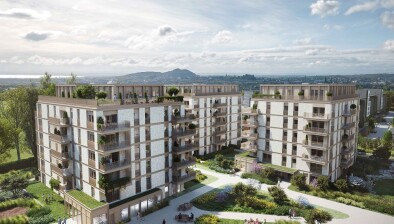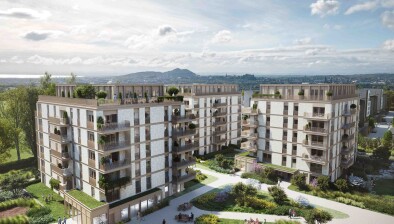Edinburgh approves plans for 168 homes at Caledonian Brewery site
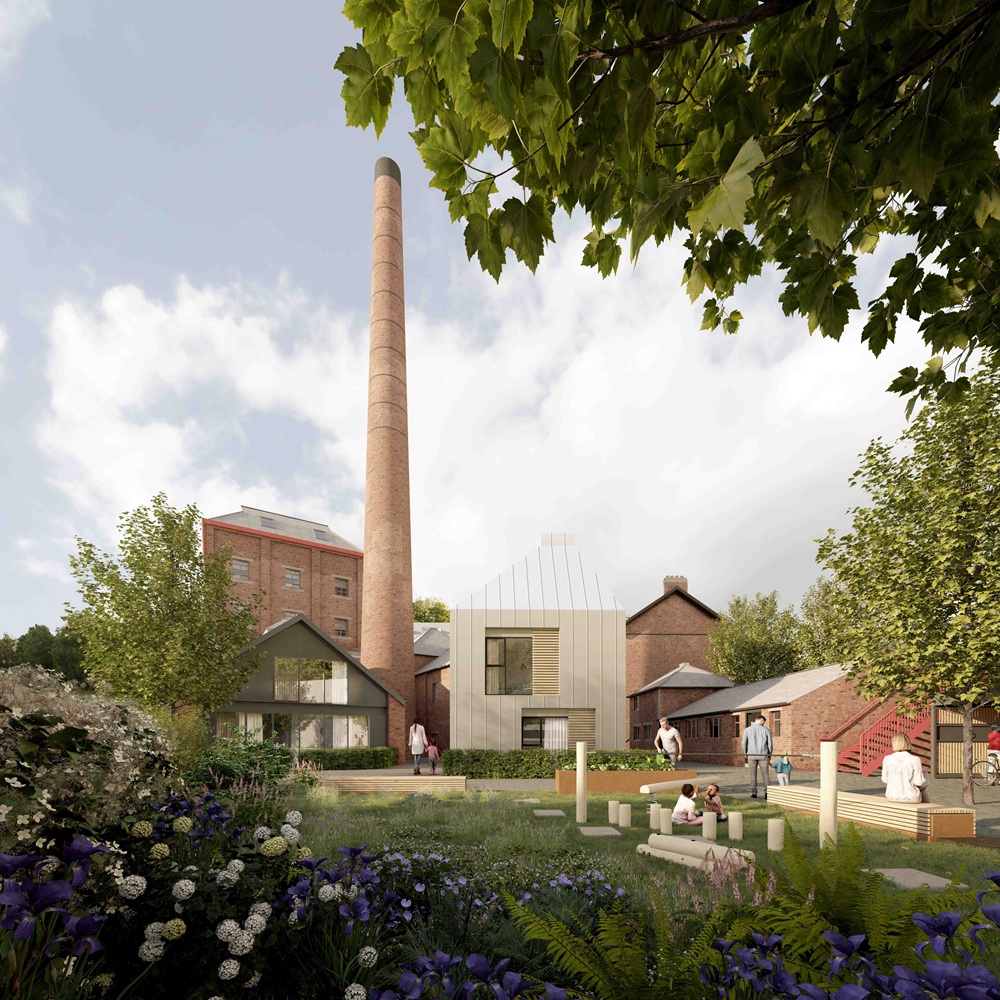
Artisan Real Estate is to progress with the homes-led transformation of the former Caledonian Brewery in Shandon following planning approval by the City of Edinburgh Council.
Councillors on the local authority’s Development Sub Committee yesterday granted unanimous consent for Artisan’s proposals to develop the historic brewery site into a low-carbon residential neighbourhood delivering 168 new high-quality private and affordable homes.
Sitting at the western edge of Edinburgh’s city centre, the Caledonian Brewery was the capital’s last major brewery prior to the ceasing of operations in 2022. The brewery was founded in 1869 by George Lorimer and Robert Clark and its distinctive range of B-listed Victorian buildings provide an important reminder of the city’s once extensive brewing heritage.
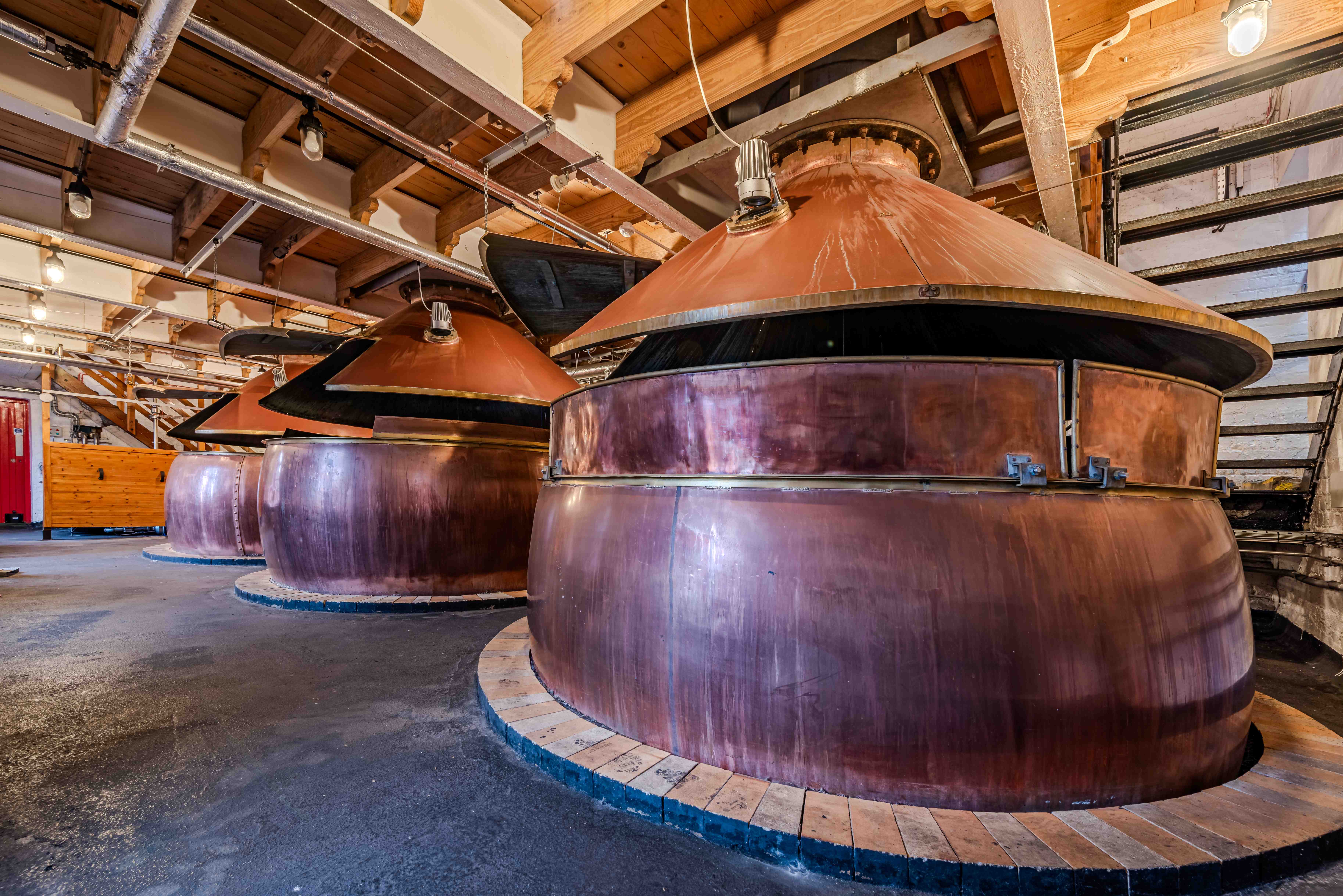
Welcoming the planning consent, Artisan’s managing director for Scotland, David Westwater, said: “This is a hugely exciting opportunity to breathe new life into a complex and historically important city centre site, providing a high-quality mix of new homes and affordable housing in line with the Council’s policy to help tackle the city’s housing emergency.
“Artisan’s UK-wide expertise as a regeneration specialist will now deliver a sustainable new residential community in an accessible city centre location that will respect, preserve and enhance the rich history of the Caledonian Brewery. Working closely with our heritage experts, we have unravelled the different layers of history and development which have governed the evolution of the site. This has been a model design approach to a very complex and challenging site bringing together a mix of buildings developed at different stages during the last 150 years.
“From the very start, Artisan placed the preservation of the site’s unique heritage right at the heart of our approach, creating a distinctive footprint which both reflects the brewery’s historical legacy whilst creating a high-quality and well-connected urban neighbourhood which promises to set new standards for city centre living.”
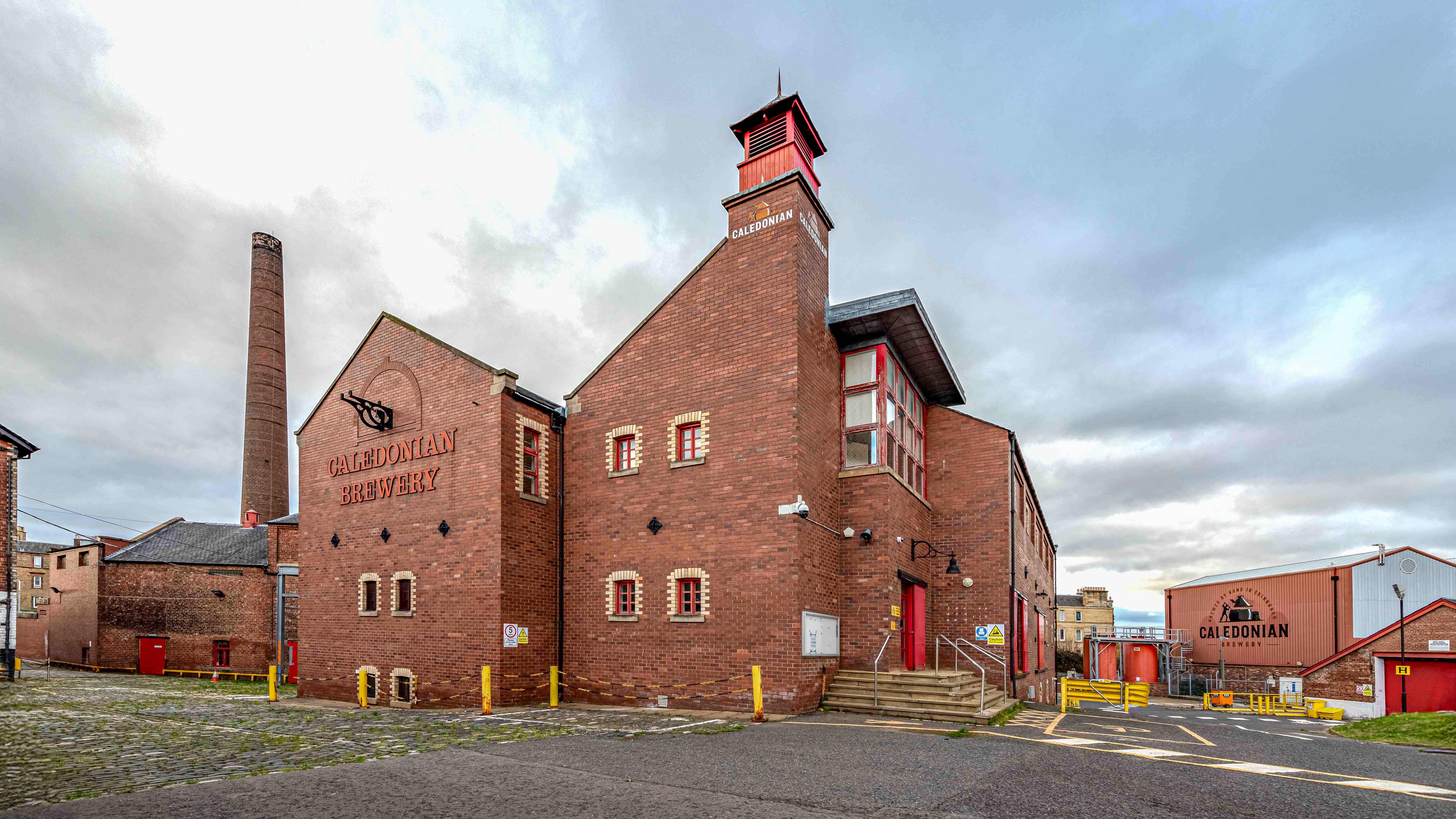
The Caledonian Brewery’s unique heritage and character will govern Artisan’s development approach. Around one fifth of the homes will be housed in the existing listed buildings which will be preserved and repurposed. Additional development proposals will respect and reflect the original footprint of the brewery – including recreating the skyline of the maltings buildings which was demolished following a fire almost 30 years ago.
Most of the listed buildings on the site date from the late 19th to early 20th century and were constructed using distinctive red brick with white brick dressings. The existing brewhouse and maltings were built in 1892 following designs by renowned Edinburgh architect Robert Hamilton Paterson, who also designed the Royal Scots War Memorial in the city’s St Giles Cathedral.
The brewery currently houses a vast amount of brewing equipment - including what was the last remaining direct fired ‘coppers’ to be used in the UK, which have been attracting the interest of independent breweries across the world. As part of the redevelopment plans, Artisan intends to ‘upcycle’ as much of the internal equipment as possible, allowing the Caledonian Brewery’s significant technical legacy to continue to play a part in today’s global brewing industry.
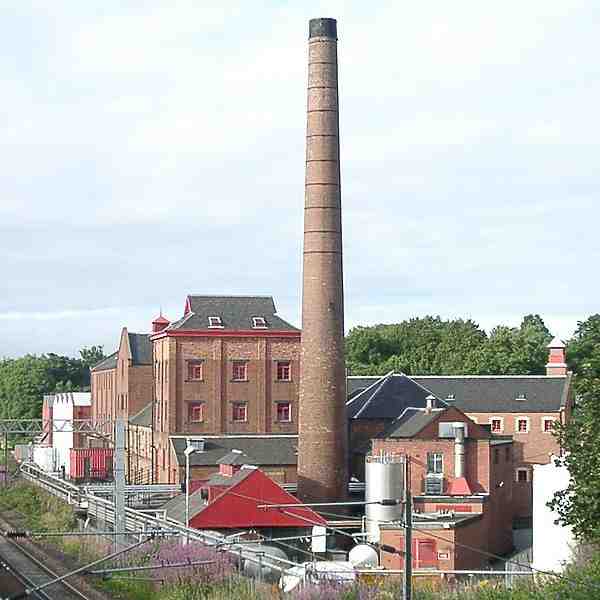
Mr Westwater added: “Artisan Real Estate is committed to delivering high quality urban living for everyone in well-connected central areas, bringing interest, investment and life back into the heart of our cities. Building high-quality, sustainable homes in sensitive and unique urban sites such as the brewery site is a lengthy, complex and expensive process – but we are confident that our comprehensive proposals will raise the UK bar for the homes-led regeneration of historically important city centre sites across the UK.”
The previous operators of the brewery, Heineken UK, invited bids for the site in 2022. A spokesperson for Heineken UK said: “The Caledonian Brewery has been an integral part of Edinburgh’s brewing history and the local community for more than 150 years. We were keen that the legacy of the brewery was maintained and contributed positively to the local community.
“Having received several bids for the site, we believed that Artisan’s plans to deliver a 100% residential scheme delivered the best outcome for the community as well as meeting the council’s ambitions in terms of delivering sustainable housing. We are pleased that the planning consent has now been granted for this exciting city centre neighbourhood to progress which is set to preserve the brewery’s legacy for future generations.”
Caledonian Brewery – Development Timeline
1865
18-year-old London tea merchant George Lorimer returns to his family home in Edinburgh following the tragic death of his father at Edinburgh’s Theatre Royale. Whilst golfing at the Bruntsfield Links Golfing Society he meets Robert Clark, then Head Brewer at the Alexander Melvin Brewery in Edinburgh. After a few drinks, they agree to use George’s future inheritance to launch a brewery in the city.
1868
George finally inherits his father’s estate and purchases the then 2.3-acre site alongside Slateford Road from the Earl of Sheldon.
1869
With George providing the money and Robert providing the brewing expertise, the pair complete the brewery and name it the Lorimer & Clark Caledonian Brewery after the Caledonian Railway Line which still forms the northern boundary to the site. The first of the brewery’s impressive direct-fired coppers were installed in the same year.
1892
Several buildings on the site were reconstructed following designs by Edinburgh architect Robert Hamilton Paterson – including the new brewery and maltings buildings. Although the brewery sold its beers and stouts all over Scotland, its most popular beer was Lorimer’s Best Scotch which was sold predominantly in the north-east of England.
1919
The popularity of Lorimer’s Best Scotch in northern England leads to the brewery being sold to Sunderland-based Vaux Breweries following the retirement and death of George Lorimer (Clark having died in 1874.)
1986
Vaux cease brewing in Edinburgh and transfers its operations to its base in Sunderland, placing the Caledonian Brewery under threat of closure.
1987
The brewery is saved by a management buy-out led by Head Brewer Russell Sharp and the Caledonian Brewing Company is formed.
1994 & 1998
The brewery’s maltings buildings is destroyed by fire in 1994 whilst another fire in October 1998 destroys one of the three original coppers. A local company comes to the rescue and hand-builds an exact replacement to the original plans. As part of the repairs, a new yeast room, cask-racking system and new settling tanks for keg beers are added, together with a kegging plant.
1999
When Vaux ceases brewing operations altogether, Caledonian buys back the rights to the Lorimer & Clark name.
2004
The brewery site and production facilities are bought by Scottish & Newcastle (S&N) following their closure of the McEwan’s Brewery in Fountainbridge, Edinburgh. Production of McEwan’s ales is subsequently transferred to the Caledonian Brewery. A new Caledonian Brewing Company (CBC) is formed by several former shareholders and directors of the pre-2004 business. CBC owns the Caledonian brands and operates the brewery site on behalf of the owners. Whilst S&N takes a 30% share in this business, CBC operates on an independent basis.
2008
S&N buys the remaining shares in CBC to take full control of the company. Heineken then acquires the UK assets of Scottish and Newcastle which includes the Caledonian Brewery.
2022
In May, Heineken announces the proposed closure of the Caledonian Brewery with an agreement in principle for Belhaven Brewery to brew its Scottish brands. In October, the site is placed on the market.
2023
In December, Artisan Real Estate announces that it has purchased the site from Heineken with a consultation set to start in February 2024 for a sustainable community of 168 new homes to be developed on the site.
2024
Artisan conducts a successful three-month consultation programme before submitting a detailed planning application to the City of Edinburgh Council in May.
2025
Artisan’s planning application is granted planning consent at a meeting of the City of Edinburgh Council’s Development Sub Committee in May.















